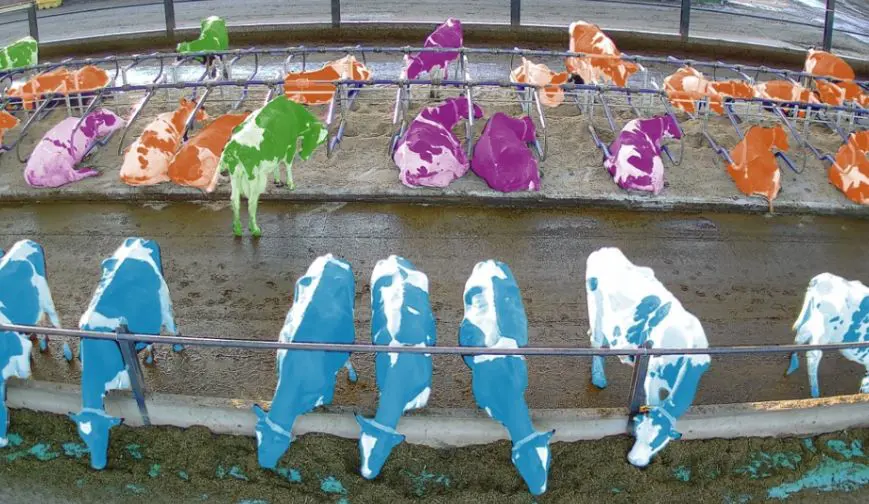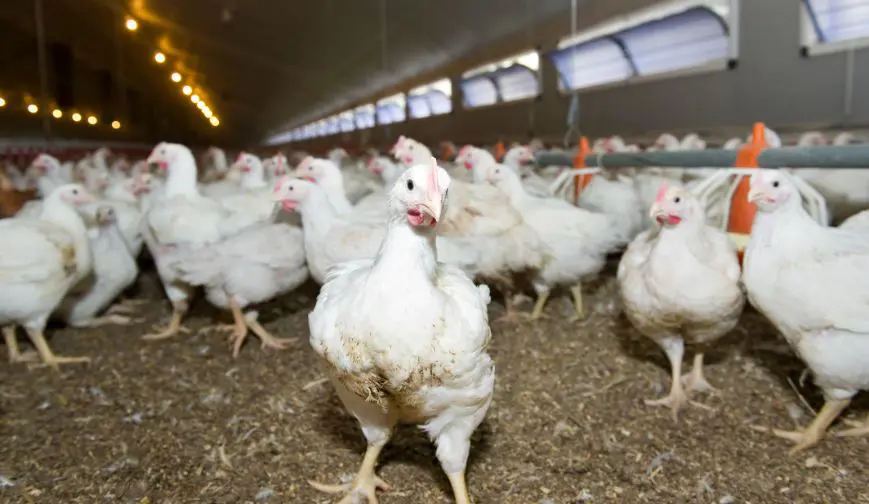Improve animal health and welfare and practise responsible antibiotic stewardship
We know that animal health and welfare is a key concern for our customers across all our different brands. Whether they’re buying our Sainsbury’s Brand food, our Tu clothing, or products from Argos and Habitat, they expect us to uphold the highest of standards and do what we can to improve animal health and welfare.
Our ambition
Our progress so far
| Baseline | Performance | Target | ||
| 2022/23 FY | 2023/24 FY | 2024/25 FY | 2040/41 | |
| Better Welfare Standards (Feather & Down): sales volume from an independently audited farm assurance standard (%) | 95.4% | 95.7% | 99.9% | 100% |
| Better Welfare Standards (Food): sales volume from welfare standards above the UK industry baseline (%) | 47.9% | 62.3% | 62.7% | YoY maintain/increase |
| 2021 CY | 2023 CY | 2024 CY | 2030 CY | |
| Continuous Improvement of Outcome KPIs: animal health and welfare outcome KPIs achieving Sainsbury's KPI performance targets: All species (%) | 66.0% | 78.5% | 80.0% | 100% |
| Responsible Antibiotic Use: Key animal supply chains achieving Sainsbury's responsible use targets for total antibiotic use: All species (%) | 82.0% | 86.7% | 86.7% | 100% |
| Critically Important Antibiotic Use: key animal supply chains achieving Sainsbury's responsible use targets for antibiotics deemed critically important for human health (CIAs): All species (%) | 55.0% | 66.7% | 60.0% | >90% |
For further information on our performance, please visit our Reports & Policies page for our Plan for Better report or read our full sustainability results in our Plan for Better Databook
Key achievements
of sourcing cage free on shell and ingredient eggs
Assured retailer (by volume) since 2011
at scale to provide chickens with 20 per cent more space than industry standard
improving welfare in our Sainsbury’s Dairy Development Group
Our approach
We continue to source with integrity and are committed to being a business that works on behalf of our customers to improve animal health and welfare within our supply chains. Treating animals well and keeping them healthy is not just the right thing to do, it also makes good business sense.
Healthy, well- managed animals are more likely to deliver better-tasting, higher- quality products that our customers enjoy buying and consuming. This report provides information about both Sainsbury’s general approach to animal health and welfare, and our care for specific species across our supply chains – from farm to fork.
Our approach is built on – and often exceeds – best practice, making us one of the leaders in animal health and welfare in our industry.
We work with our farmers to focus primarily on improving animal health and welfare outcomes.
We made an active decision to shift from a standards-based approach to focusing on outcomes – this means going beyond checking that standards are being complied with and instead looking closely at how animals are actually doing on a real-time basis – checking their health, how they behave and how well they are being looked after across every species in our supply chain.
What are welfare outcomes?
Welfare outcomes are measurements which relate directly to the animals to ensure their needs are being met. These are broken down into Key Welfare Indicators, which have been individually created for each of the species we’re supplied with.
Our farmers have to show us they’re achieving these indicators by demonstrating good management practices like high standards of housing facilities, consistent access to feed, water and environmental enrichment. The crucial point here being we don’t dictate exactly how they achieve this. We let the animals’ health, physical condition, performance and behaviour speak for itself.
This ‘measure and manage’ approach allows us to benchmark performance and share best practice.
Does it work?
We have collected the largest data-set on animal health and welfare outcomes in the country over 10 years and covering 2 billion animals which has enabled us to benchmark progress, consistently measure our impact and drive areas of continuous improvement with our farmers. We continue to see this as the future direction with technology enabling even greater levels of data collection.
Our science led, data-backed, approach has seen us make bold moves with our suppliers, to enhance welfare outcomes. We continue to promote responsible antibiotic stewardship in our supply chains and work closely with our suppliers to measure, monitor and reduce antibiotic use where possible.
We’re encouraged by the progress our farmers have made and continue to support them by working with experts in animal health & welfare, sharing best practice and supporting research in this field.
Working in collaboration
Progress on animal welfare will require collective action and we’re determined to be at the forefront, driving change in partnership with our farmers and suppliers that puts the health and wellbeing of animals at the heart of how good food is made. That’s why we have launched several farmer development groups on our main agriculture value chains with over 2,000 members. This lets us work directly with farmers we know, trust, and who share our vision and values.
These suppliers get training and resources to improve animal health and welfare using efficient, sustainable methods. Our Sainsbury’s Dairy Development Group, Sainsbury’s Egg Group and High Environmental Impact Suppliers group help farmers stay profitable while producing high-quality meat, dairy, and poultry in ways our customers expect.
We implement our farm animal health and welfare policies by working with independent auditors, suppliers and processors, and directly with our farmers. All of our animal supply chains are independently audited.
Vet tech a world first for Sainsbury’s dairy farms
We have become the first retailer in the world to invest in new AI veterinary technology, Vet Vision AI, that can measure and enhance animal welfare on dairy farms, with potentially significant impacts on quality and productivity. The new technology developed by Vet Vision AI, a spin-out company from the University of Nottingham, is designed to both spot problems and identify when and why cows are happy and healthy.
Vets can use low cost, portable cameras to monitor cows on multiple farms, with the AI recognising patterns in behaviour. This can then be analysed and the video footage turned into real-time, accurate data. 24-hour monitoring means farmers can confidently share unique insights into cow welfare that can’t always be identified during normal vet visits. As well as early identification of illness, the technology monitors positive improvements in cow behaviour and insights through AI analysis for the farmer to discuss and implement change, such as ways to increase comfort levels to mitigate disease.
The technology allows a ‘test and learn’ approach to welfare interventions. Healthier cows are more productive, so farming efficiency improves. If, for example, the AI advises improving cow comfort through increased lying time, this could lead to the cow becoming stronger on its hooves and able to produce more milk for the same amount of feed.
AI use on farms is an expanding area, but what sets this technology apart is the ability to show when a cow is thriving, as opposed to just spotting illnesses and ailments. Vet Vision AI is currently in use on 30 of Sainsbury's Dairy Development Group farms, and we aim to roll out the technology further next year.

Launch of Sainsbury’s Egg Group is a UK first
We have launched a new Egg Group to support our egg farmers, ensuring a stable supply of eggs and improving sustainability. This initiative is a first for the UK retail sector and has three key points of focus:
Financial security: we have committed to paying the cost of production or above for eggs, providing farmers with financial stability in a volatile market with the aim of encouraging investment in future innovation.
Enhanced animal welfare: with a focus on continuous animal welfare improvements, we utilise data and insights, which are shared between farms, to facilitate learning and best practice across the group.
Carbon reduction: farmers in our Egg Group are committed to carbon reduction and annual carbon footprint assessments. We support farmers in implementing sustainable practices, such as reducing soy in feed and transitioning to renewable energy – and farmers are already making progress in these areas.



